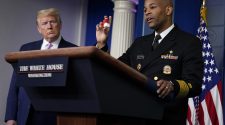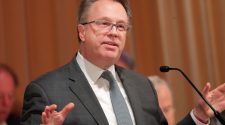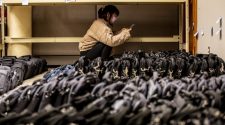A year on from the brutal murder of journalist Jamal Khashoggi, the kingdom of Saudi Arabia is using social media influencers, including some Australians, to repair its damaged image.
On Instagram, blonde, blue-eyed women wearing abayas in the dusty landscape beckon millions of followers to rethink their perception of Saudi Arabia.
The country has employed the public relations company Gateway KSA, of which Prince Turki Al Faisal Al Saud is an executive member, as one method of bringing social media personalities to the country on all-expenses paid, supervised trips.
Influencers are chauffeured around in helicopters, taken scuba diving in the Red Sea, put up in lofty hotels and driven out to an ancient, unfinished tomb in the Al Ula desert, and have all published resoundingly positive posts.
The highly curated social media posts avoid any mention of human rights abuses, such as beheadings and crucifixions, women fleeing the country because of domestic violence, or Saudi Arabia’s bombing campaign in Yemen, which the UN says is causing the world’s worst humanitarian crisis.
Dr Raihan Ismail, an associate lecturer at the centre for Arab and Islamic studies at the Australian Nationality University, says Saudi Arabia has invested billions of dollars to reform its image in the west.
“The Saudi government is investing so much in trying to reconstruct its image, particularly after the assassination of Jamal Khashoggi, the Saudi journalist who was killed in the Saudi consulate in Turkey,” she says. “I think that’s when people started to realise that we’re dealing with an authoritarian regime. We’re dealing with a state that is so repressive.”
Influencers travelling under a state-sponsored program are not getting the full picture, Ismail says.
“If someone goes to Saudi Arabia and sees all the changes that are taking place in Saudi Arabia and how some Saudis particularly younger Saudis are enjoying themselves, of course they’re going to say that ‘this is great the Saudi state is changing its liberalising’. But on the other hand, we’re dealing with a very repressive state.’”
She also cautions that those working on the regime’s image need to consider the ethical dimensions of doing so.
“Sometimes you have to pick a stand. The standard you walk past is the standard you accept. If you see the country violating human rights. Do you turn a blind eye or do you take a stand?”
She points to recent cases, including Nicki Minaj, who pulled out a concert in Saudi Arabia to show support for women and LGBTI people.
Australians Gab Scanu @gabscanu (363,000 followers) and Tara Whiteman @taramilktea (1.3m followers) have been influential in selling Saudi Arabia to young Australian tourists.
Scanu, a 22-year-old photographer, was one of the first influencers enlisted by Gateway KSA to film a video of the kingdom in February 2018 and has received plenty of backlash for accepting the sponsored trip.
He says he accepted the invitation for creative purposes and did not consider the political implications.
“I don’t agree with ‘influencers’ travelling there and commenting on issues they’re not educated in,” he says. “It’s definitely not what the media makes it out to be. I think there are a lot of improvements to be made for sure but I never felt unsafe or in danger while there.”
Guardian Australia contacted almost 50 influencers who appeared to have accepted sponsored trips or been paid for advertisements. Two of them who were posting photos of Saudi Arabia to five Instagram accounts with a combined 4.65m followers cancelled five minutes before an arranged interview. They say the Saudi tourism board sent a group message asking influencers not to speak to media.
A few weeks ago the absolute monarchy announced it was introducing a tourist visa, open to 49 nationalities, including Australians. It also pledged it would allow unmarried foreign men and women to share hotel rooms. Previously the kingdom had been off limits for most tourists.
The influencers were enlisted in the lead-up to the announcement to soften the country’s image and gloss over human rights abuses.
There is a long list of rules for visitors to observe, including dressing modestly, not showing public affection, and not drinking alcohol. It is also illegal to display sympathy towards Qatar, practise homosexual acts, practise a religion other than Islam, or make comments online that ridicule or criticise religion, the Saudi royal family, Saudi Arabia or its leadership.
Under crown prince Mohammad bin Salman, Saudi Arabia has attempted to reform its ultra-conservative reputation and plans to diversify the nation’s economy through sectors such as tourism, reducing Saudi Arabia’s economic dependence on oil exports.
Rapid development has seen high-end resorts popping up across the Red Sea across 50 islands and 34,000 sq km.
The past few years have seen gradual improvements in women’s rights. In January 2015 women were permitted to run for office in municipal elections, and in 2017 they were granted the right to drive. The country’s strict guardianship rules, which required women to gain permission from a male relative to travel or apply for a passport, were relaxed in August.
Scanu says local women he met during his sponsored tour claim the media misrepresents women’s rights in Saudi Arabia.
“We actually spoke to a lot of young females who voiced the fact that they studied abroad in the US and did not agree with the way women’s rights are portrayed in the media as they were all very proud of their country and culture,” he says.
But while influencers talk of a nation opening up to the world, six women who spearheaded the campaign to allow women to drive remain in prison without charge.
One of them is a Saudi women’s rights activist, Loujain al-Hathloul, who alleges she was tortured after being abducted and forcibly returned to Saudi Arabia while studying for a master’s degree at the University of British Columbia.
The Dutch-Australian founder of tGateway KSA, Nelleke Van Zandvoort-Quipsel, says issues such as the treatment of women, the guardianship law, Saudi Arabia’s role in the war in Yemen and the murder of Jamal Khashoggi are all discussed – and no topic is off limit.
“All the Saudis they meet are willing to talk about their views candidly and openly,” she says. “It’s real people, sharing real experiences, and from that they can judge and form their own opinion. We don’t guide them in how or what to think, whether positively or negatively.”
Despite the assurance of openness, influencers overwhelming focus on the country’s landmarks and natural attractions and steer clear of controversy.
A former Bachelorette contestant, Kasey Stewart (20.8k followers), travelled to Saudi Arabia last September after meeting Van Zandvoort-Quipsel in Antarctica.
The Oklahoma social media personality says change is happening in “baby steps”.
“I know enough that I do know that obviously with a country that has hundreds of thousands of years of history and culture to it that it’s not something that is going to happen overnight,” Stewart says.
“I think the biggest thing that I took away was how many genuine people live in the country that do love their country and wanted to see it change. They’re normal people that want normal lives. A lot of them are really happy and sure some of them aren’t. But yeah it is a really beautiful country.”
Guardian Australia contacted Saudi Arabia’s tourism board for comment.

















